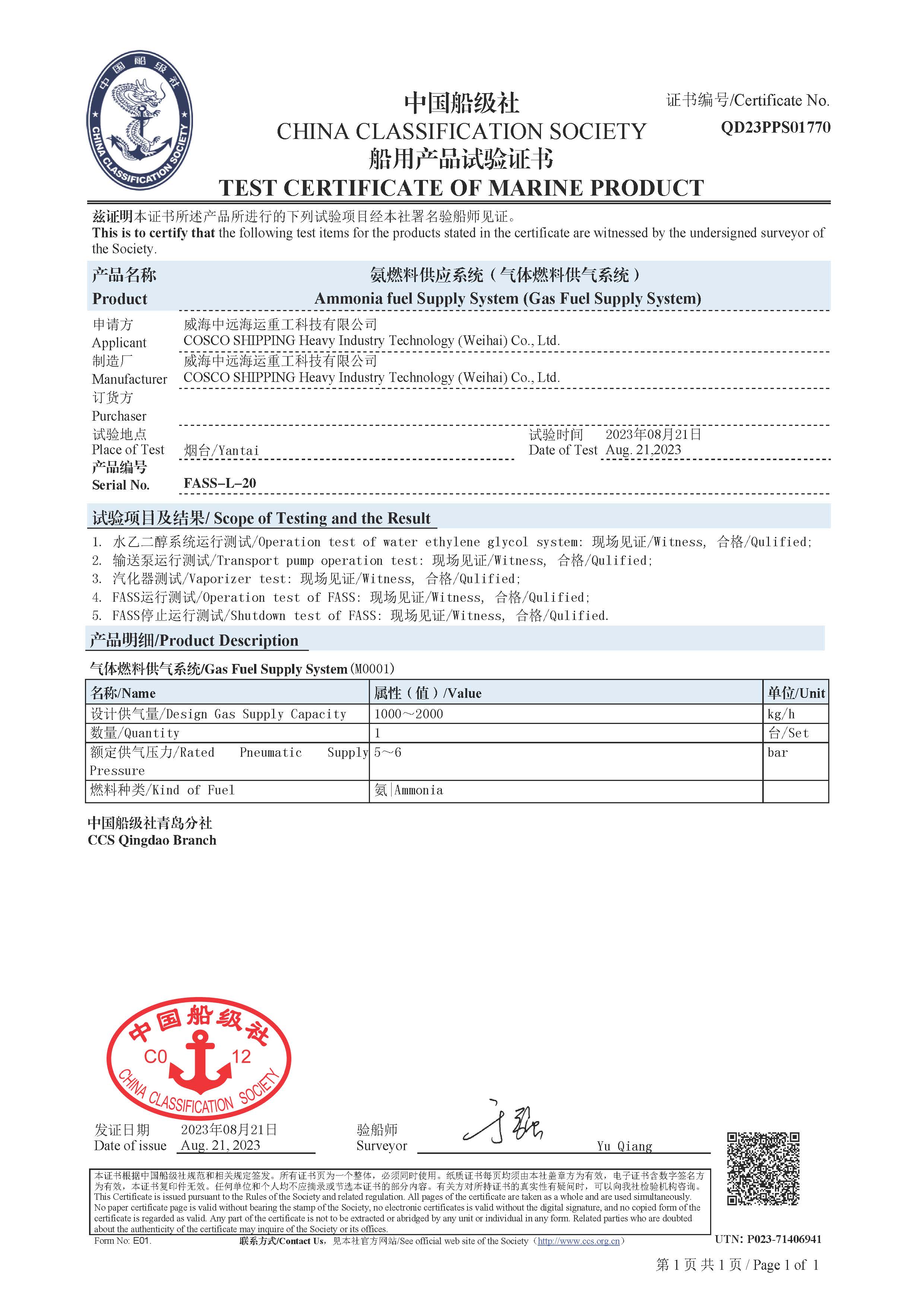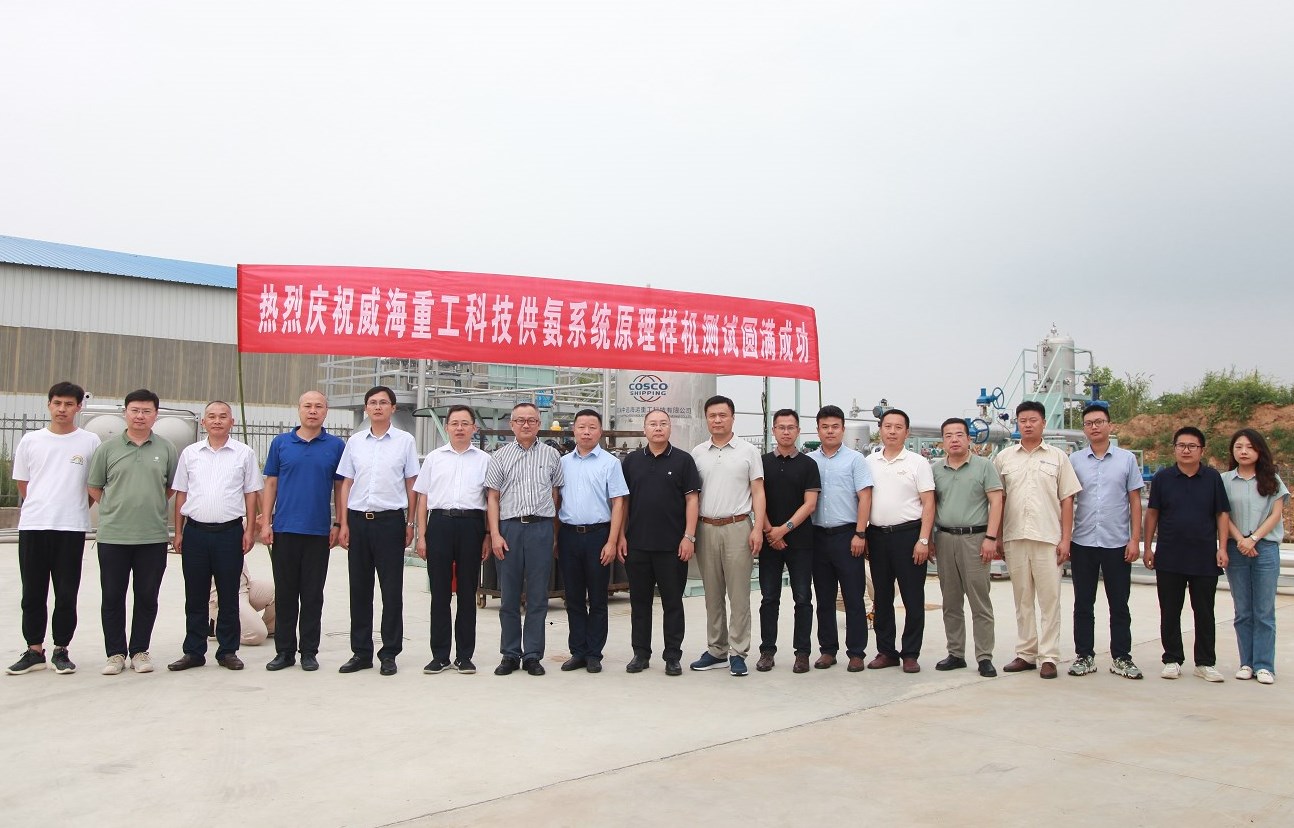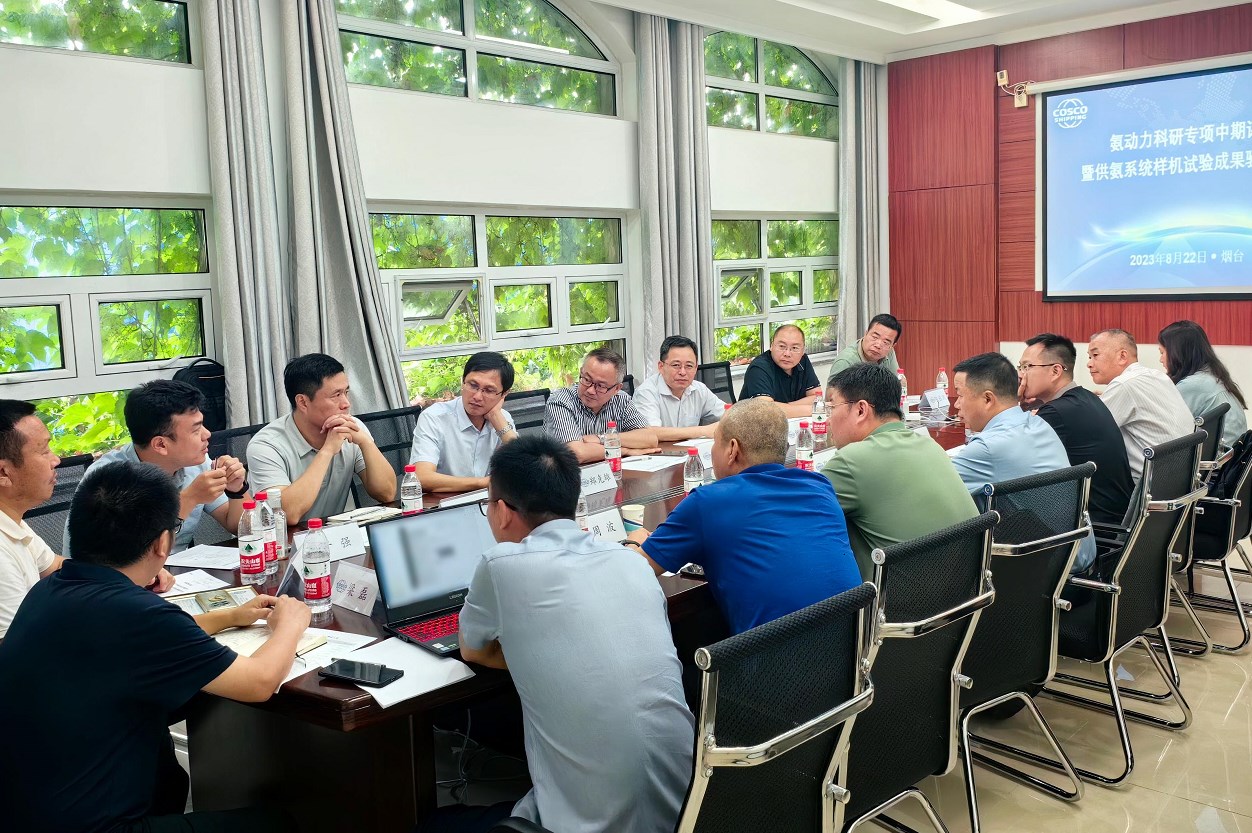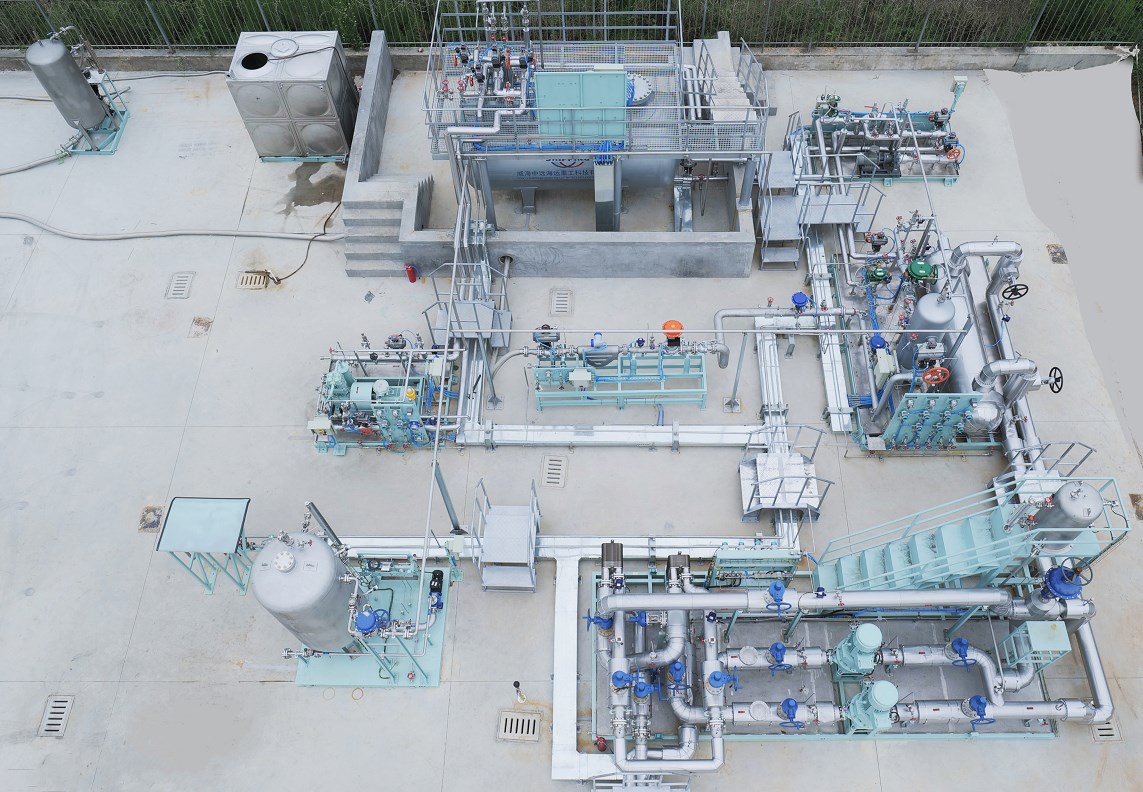On August 22, the Ammonia Fuel Supply System (FASS) independently developed by COSCO SHIPPING Heavy Industry Technology (Weihai) Co., Ltd (company abbreviation: CHIT and the following will be expressed in company abbreviations) passed the acceptance of the expert group and obtained the world's first China Classification Society (CCS) test certificate for marine products, becoming the first manufacturer in China to successfully run FASS in simulated ship scenarios. The successful operation of the FASS of CHIT is another major breakthrough in the project of "Demonstration and Application of Ammonia-powered Dual-fuel Engine and Supply System "of COSCO Shipping Heavy Industry.
CHIT reported on the operation of the system and commissioning to the participating experts and leaders, and showed the working principle of each skid of FASS, the control unit and its functions. The expert group focused on the process design, electrical design of the system and reliability of ammonia in the application of the system.
CHIT became the first manufacturer in China to successfully operate FASS in a simulated ship scenario when engineer pushed start button in the main control room. The system runs steadily and reliably, and all kinds of parameters met the design requirements, which was highly praised and unanimously recognized by the expert group.
Currently, ammonia is widely recognized by the industry as one of the promising fuels for a wide range of applications on the path to a green and low-carbon transition in the shipping industry. Based on this, CHIT has been committed to the technical research and development of FASS. Through technical research, CHIT has broken through the key technology of liquid ammonia filling, storage and supply, etc. The Core control system with dual redundancy, closed-loop automatic process control, applies multi-variable decoupling algorithm and pressure stabilizing control logic, which can ensure the stable output of the fuel supply pressure, temperature and other parameters under the changing working conditions of the engine load, and warrant the stable operation of the ship's main and auxiliary engines under all working conditions.
COMPANY ADDRESS:No. 19 Shenyang South Road, Huancui District, Weihai, China, 264203 TEL:0631-5788678




